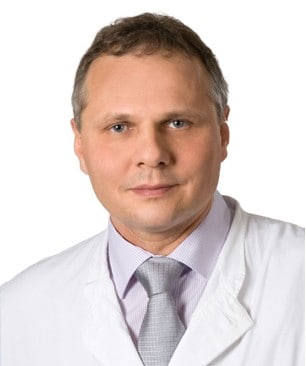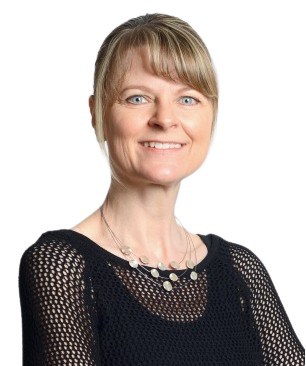Psychiatrist versus Psychologist. Introduction

A person who has developed psychological or psychiatric problems very often is not sure whether to see a psychiatrist or psychologist. Many people are not aware of the differences between a psychiatrist, a specialist who practices psychiatry, and a psychologist, a specialist who practices psychotherapy (called “talk” therapy or counselling). The below description will help you choose the mental health treatment professional that best meet your needs.
Difference between Psychiatrist and Psychologist
The main difference between a psychiatrist and psychologist is that a psychiatrist is a medical doctor, also called physician. A psychiatrist is specialized in the neurochemistry of the brain and provides medication to treat mental health disorders. This medication restores the imbalance of the neurotransmitters in the brain and central nervous system.
Psychiatrist, German Board Certified
German qualified psychiatrists meet rigorous requirements to be licensed to practice psychiatry. They must complete at least 5 years of postgraduate training. To obtain the specialist license of Psychiatry and Psychotherapy (“Facharzt in Psychiatrie und Psychotherapy”) in Germany, medical doctors (MDs) must also be trained in psychiatry for minimum four years. This training must include at least one year in neurology. To acquire the Board Certificate in Psychiatry and Psychotherapy the applicant must pass a state exam.
German board-certified psychiatrists initially work in certified hospitals that treat a broad spectrum of psychiatric disorders. This assures that a psychiatrist will have been exposed to every possible condition. This exposure gives psychiatrists the knowledge and experience to practice psychiatry and treat patients once they are in private practice. Psychiatry is a very diversified field. In Germany, psychiatric hospitals can be specialized in the treatment of particular disorders, for example depressions or psychosomatic disorders, while others treat only people with addiction. Big hospitals in Germany have several wards specialized in the treatment of different psychiatric disorders.
The human psyche is not a palpable piece of matter. It is the product of processes happening in the brain but not identical with it. Using the model borrowed from computer sciences, psychiatry deals with the “software,” e.g., the mental processes that happen on the neuro-molecular level in the brain.
Neurology as a part of psychiatrist curriculum
Psychiatry and Neurology are two intertwined disciplines. Using the simplified hardware-software model again, the psyche can be compared to the software (psychic processes) running on the hardware (brain). In contrast to psychiatry, neurology focuses on the “hardware,” the human brain, and the peripheral nervous system. The brain can be compared to the microprocessor and the peripheral nervous system (lower spine, nerves, and the autonomous nervous system) to the motherboard and wires connecting it with the sensory or executive organs.
Some neurological disorders affecting the brain such as Multiple Sclerosis, Morbus Parkinson, strokes etc. can influence the psyche and create symptoms similar to psychiatric disorders. Training in psychiatry must give an aspiring psychiatrist at least a minimum of insight into neurology. Therefore, the training in neurology is an essential part of the German psychiatric curriculum.
Psychotherapy an important part of the psychiatric education
Unique to the German system is that every German psychiatrist, in parallel to training related to the neurochemistry of the brain and psychopharmacology (medication), is also trained in the psychotherapy. More information on psychotherapy will follow below.
What is Psychology?
Psychology is the science of mind and behaviour involving studies of conscious and unconscious processes. The subjects of examination are such phenomena as thinking, brain function, behaviour, emotions, personality, and human development. Psychology is researching on all the different aspects of the human psyche in its interaction with the brain. Psychology is a vast discipline that transcends the boundaries of the natural and social sciences. Psychologists are merging this field with neuroscience to seek an understanding of the brain’s emergent properties.
Who is Psychologist?
A psychologist is a professional practitioner or researcher working in the field of psychology. Some psychologists research on mental functions of personal and social behaviour. Others explore the physiological and neurobiological processes underlying cognitive functions and behaviours.
Psychologists are educated in the academic discipline of psychology. They either hold a master’s degree or Ph.D. A Ph.D. is a philosophical doctorate and not a Doctor of Medicine (M.D.). In addition to graduate work, practicing psychologists, called psychotherapists, must have significant supervised experience to obtain licensure and must pass state examinations.
Who is Clinical Psychologist?
A clinical psychologist has studied mental health, human behaviour, the mind, and various therapeutic approaches to utilize evidence-based therapy thereby promoting desired healing and positive change. Specialists call this psychotherapy, counselling, or “talking cure.”
What is Psychotherapy?
Psychotherapy is a method positively affecting a person’s mental processes without using medication. This happens by influencing the thinking and feeling of the patient with “talk therapy”, e.g. psychological interaction with the patient.
For psychologists the training in psychotherapy takes place after the academic studies of psychology. The German psychiatrists are trained in psychotherapy throughout the entire psychiatric education. This training consists of blocks of theory. The “trainee” psychologist will initially only work with patients under the constant supervision of an experienced and certified psychotherapist.
Another aspect of training in psychotherapy is about getting insight into the psychotherapist’s own “psychological apparatus.” Every psychotherapist goes through their own psychotherapy with an experienced colleague as a supervisor. The reason for such supervision is to avoid the risk of “unloading” his personal problems on patients by the psychotherapist. This psychotherapy training and the board certification again ends with a state exam.
Psychiatrist, Psychologist, Neurologist. The differences and similarities. Conclusion
The above article describes the sciences related to mental health trying to explain to the lay person the division lines between these disciplines.
The difference between psychiatry and psychology seems to be clear. Psychiatry is dealing with the brain on the neurobiological level using medication. On the other side psychology influences the brain neurobiology “from outside the box”, interacting with the patient by using psychotherapy.
This difference can be less obvious as in some countries psychiatrists are trained also in the “talking cure”, the psychotherapy. In other countries, for example in the US, the psychologists can obtain the licence allowing them to prescribe particular psychiatric medication, such as antidepressants.
In other case the borders between the disciplines practically don’t exist. Especially in case of “overlapping diagnoses” such as dementia which can be treated by both medical professionals, psychiatrists as well as neurologists.

DR. GREGOR KOWAL
Senior Consultant in Psychiatry,
Psychotherapy And Family Medicine
(German Board)
Call +971 4 457 4240

Dr. Annette Schonder
Clinical Counsellor,
Marriage Therapist, Hypnotherapist
(American Board)
Call +971 4 457 4240
